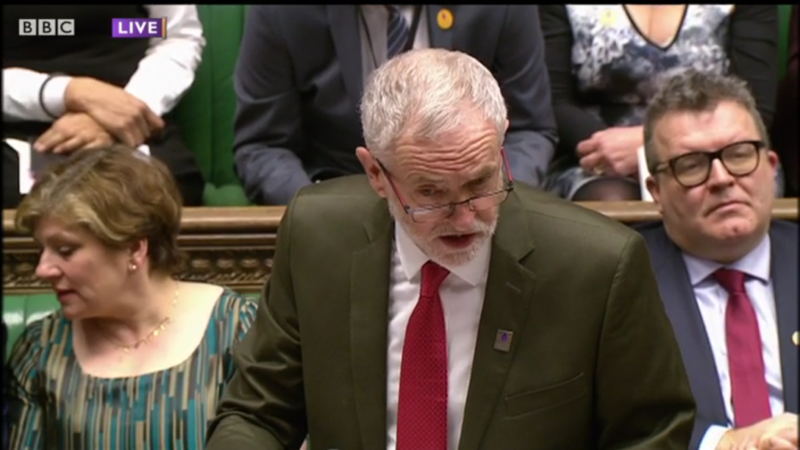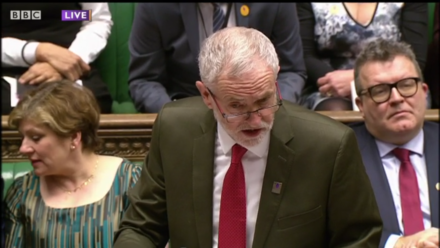

Same as last week then folks? It’s the pre-event cry of a stage show cast or a winning football team and it seems to be echoing out around the offices at the top of the Labour Party today.
To some that will prompt surprise. To others, perhaps fury. But it seemed inevitable that Jeremy Corbyn would persist with a three-line whip despite the turmoil of last week.
You can argue about whether that is the right decision – and my own view, as I said a few days ago, is that a free vote might have been better – but it was indisputable that the party leader would stick with the maximum measure. Having stuck his head out last week, and seen some of his MP colleagues growl at it, he had little choice but to continue.
So the headlines today about the three-line whip being imposed on three days of Brexit bill debates in the Commons, which begin today, are neither shocking nor surprising.
What was a surprise was when Corbyn decided to whip the vote on article 50 in the first place. That was fewer than two weeks ago but it feels like years. Now, however, he has to stick with it or see the logic of his position undermined further.
There was a logic to that position, announced on 26 January after weeks of speculation, borne out of a quite understandable desire to reassure the public that Labour are not Brexit backsliders. The party’s dire opinion poll ratings, and loss of support among working class voters in the north of England, will only be weakened further if we were seen to oppose the will of the people as expressed in a referendum.
Corbyn’s problems mounted, however, as he knew they would, when several shadow ministers in Remain-backing constituencies announced they could not vote for article 50 and would leave the frontbench. The leader’s speedy and emollient response to the resignations of Rachael Maskell and Dawn Butler from the shadow cabinet, in which he said he “understood the difficulties” facing MPs in pro-EU seats, illustrated his expectation that this turn of events would unfold.
Now he faces the prospect of more departures this week – not necessarily from sackings, because in another spell of thinking out loud yesterday he described himself as a “very lenient person” – but from voluntary ejections by MPs who cannot stomach walking through the lobbies to support a policy of EU withdrawal, which they believe will make their constituents poorer and with fewer protections in the workplace, and find the leader’s stance difficult to defend publicly.
It’s a sticky situation to be in – or “difficult”, as Keir Starmer put it last week – but Corbyn has no choice other than to persist or to risk further accusations of chaos. When you talk to backbench MPs their biggest day-to-day frustration is often with what they regard as the incompetence of the leader and his team, rather than a raft of ultra-left-wing policy initiatives, and for Corbyn to have shifted his stance on the whipping would have prompted more criticism from the backbenches.
Instead Corbyn has tried to negotiate a way through by sending different messages to party and country. This shouldn’t be regarded as something awful – all politicians talk to individual groups about their own priorities rather than trying to use blanket approach.
So Corbyn seems, with the absence of disciplinary measures, to be telling MPs they can vote according to their conscience, and then re-affirming to the country that Labour will not “frustrate” Brexit. It may feel convoluted but this railway-lover knows that, having hopped on board the train, he must ride it to the destination of Wednesday’s votes and hope he doesn’t hit the buffers.




More from LabourList
Almost half of Labour members oppose plans to restrict jury trials, poll finds
‘How Labour can finally fix Britain’s 5G problem’
‘The University of the Air – celebrating 60 years of Harold Wilson and Jennie Lee’s vision’